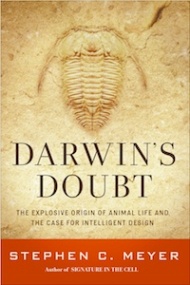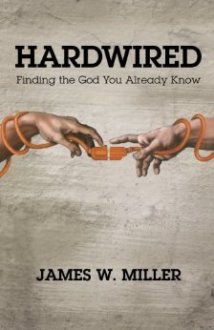 Steven Pinker’s Enlightenment Now is a 2018 bestselling book from the hand of a Harvard professor of psychology which triumphs the accomplishments of science, reason, progress, and humanism. The values of the Enlightenment, he says, have worked. We’re a better species for all of these intellectual developments, which have led to tangible improvements in all human society – longer lives, better healthcare, less violence, more education, broader knowledge, and more happiness. Critics have piled praise on this mega-seller. Bill Gates has called it his “favorite book of all time.”
Steven Pinker’s Enlightenment Now is a 2018 bestselling book from the hand of a Harvard professor of psychology which triumphs the accomplishments of science, reason, progress, and humanism. The values of the Enlightenment, he says, have worked. We’re a better species for all of these intellectual developments, which have led to tangible improvements in all human society – longer lives, better healthcare, less violence, more education, broader knowledge, and more happiness. Critics have piled praise on this mega-seller. Bill Gates has called it his “favorite book of all time.”
Not everyone likes it. Pinker claims that liberal and conservative critics of his work alike are offended at his ideas and “really hate progress” (52). In fact, his critics don’t generally hone in on his pollyanna pronouncements. They focus on the fact that he attributes progress to an overly simplistic cause-and-effect relationship with the values that Pinker favors. The Atlantic calls attention to the fact that the scientific establishment upends the emotional attachments and longings of the hometown suburbanite (Gopnik, 4/18; also cf. Szalai, NYT, 2/18), but longing for traditional family isn’t one of the values that Pinker perceives to be contributing to human flourishing. Vox points out that the true challenges to Enlightenment Now are “reasonable points made by knowledgeable professionals about what one needs to prove to give a convincing account of the impact of the Enlightenment” (Hanlon, 5/18), professionals like David Bell, Princeton historian, who questions why Pinker doesn’t engage in any real analysis of Enlightenment thinkers. Rousseau, for instance, was one of the most popular Enlightenment thinkers and didn’t believe in the progress Pinker panagyrizes, and Enlightenment thinkers didn’t oppose religion the way Pinker says enlightened people must. The critics aren’t cynical. They’re rightly confused.
Me too.
My concern is a different one, speaking as a pastor and at least casual theologian. Pinker makes sweeping dismissals of anything he disagrees with, and does so with disregard for science and reason. He attempts to steal ethics from religion and hand it to science, despite the deplorably unethical uses to which science has been given historically, and his treatment of religion is exactly the kind of polemical, polarized nonsense that he is so critical of in the world of politics.
Pinker likes reason when it works for him and otherwise sets it aside – exactly the behavior that he so articulately chastises.
When it comes to ethics, there is a rigorous body of moral commitments which Pinker depends upon. However, it’s not entirely clear where they come from. “The moral worldview of any scientifically literate person – one who is not blinkered by fundamentalism – requires a clean break from religious conceptions of meaning and value” (477). So not from there. He tips his hat to the reality that science cannot make definitive ethical prescriptions either, but he seems to hold on to the hope. Elsewhere, Pinker has claimed that maybe ethics can be found in the nature of morality, because evolution produces progress (it doesn’t actually), which is of moral value because Pinker says it is (“Evolution and Ethics,” Intelligent Thought, 2006, 150). Omitted is any consideration of the fact that modern racism was propped up by scientific theories spanning from Charles Darwin himself through the well-educated scientists of the Third Reich. The problem here is not that the science was bad, but that the scientists were bad, and bad scientists will always use the tools of science to forward evil achievements. Science is ethically neutral.
Likewise, on the subject of religion, the optimistic professor says unequivocally, “There is no such thing as fate, providence, karma, spells, curses, augury, divine retribution, or answered prayers…” (477). Notice the deceptive grouping of the mainstream – answered prayer – with the not so much – spells. It’s like saying, “You know…science, with its gravity, evolution, aether, dark energy, leeching, feminine hysteria, Chernobyl, and Piltdown man.” More importantly, notice that he gives no reason, evidence, or science behind his claim. In a 2004 lecture to the Freedom From Religion Foundation, Pinker calls the Bible “a manual for rape and genocide and destruction.” He then goes on to say that he is not aware of any scientific enquiry into the claims of religion, and tries to account for the ubiquity of religion through a quirky, piecemeal explanation that leans on psychological vocabulary without doing any science.
So here’s the kind of scientific evidence I want Pinker to account for. Scientists study first-hand evidence right under their own noses and then account for it. Some time ago, I was leading a Bible study in a room of about 40 people. We were reading miracle stories from the Bible and asking if we should have similar experiences today. A friend of mine, a medical doctor, raised his hand and told me, “Jim, I think God is telling me to pray for someone.”
“Good for you,” I said. Pastors are supposed to encourage these things, but I didn’t know what to do with that.
“I mean right now,” he said.
“Oh,” I said. This is getting weird.
“Someone in this room has trouble clenching his left hand all the way,” he said. I had no experience in such things, and only knew them through televised fundraising charlatans. Fortunately, my thoughts were interrupted.
“That’s me,” said another guy at the back of the room. “I haven’t been able to close my left hand all the way for about 20 years.” He said it didn’t bother him much, and only hurt occasionally. I sent the doctor to pray for the man in the back of the room and made plans to sympathize when nothing happened.
The next day, the man with the injured hand called me on the phone. “I don’t know what to tell you,” he said. “My hand has been healed. Not only that, but when that guy started talking, I felt a warm sensation flow upwards from my feet through my whole body.”
Here’s the deal, Steven Pinker. Both of these guys are still friends of mine. Both can tell you the story. I’ll give you their phone numbers. A medical doctor is not a tribalistic anti-intellectual. Nor am I, actually. Nor are most Christians in America, though you seem to think they are. Furthermore, you can’t write this account off as lacking witnesses, because there was a crowd, nor coincidence, because the doctor described the situation before it happened. You can’t complain that the experiment is irreplicable, because it was, itself, a repeated test of former cases, the ones in the Bible.
The problem with Pinker’s book, and Pinker himself, generally, is that reason goes out the window on the subject of religion. Pinker claims that “we know” religion isn’t true. The problem is that there are Christians at his Harvard, and throughout the Ivy League, and not just among the student body – among the faculties. Neither John Lennox at Oxford, nor Alister McGrath at King’s College, nor Robert George at Princeton, nor Nicholas Wolterstorff at Yale, nor Michael McConnell at Stanford, nor Alvin Plantinga at Notre Dame, nor Martin Nowak at Harvard know that religion isn’t true.
They, like the values that you don’t subscribe to, simply don’t count.


 Steven Pinker’s
Steven Pinker’s 




